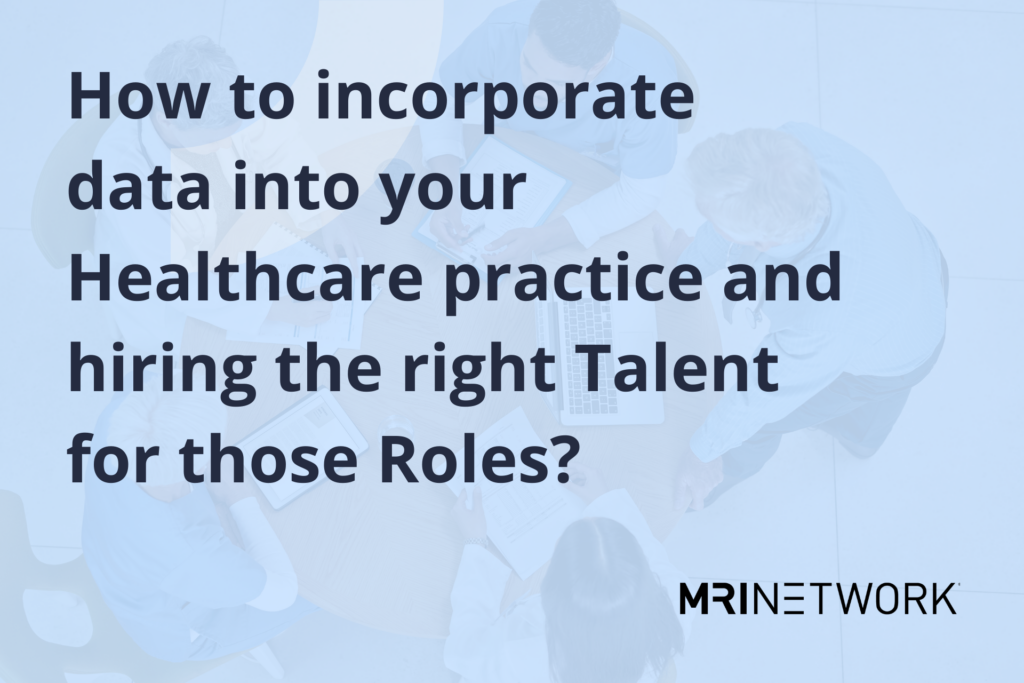There are a few fundamental truths in healthcare. Chief among them is that healthcare success isn’t just based on intuition — data matters. The use of data has tremendous potential within the healthcare world but also creates fantastic challenges. Chief among them: How do you incorporate data into your practice? And what sort of strain does that place on your already overburdened and overworked HR departments?
Data, Data, Data
The sheer amount of data is overwhelming. Consider various sources of data and what they record:
- Administrative data that can be electronically analyzed.
- Patient medical records that can reveal granular information about a patient can then be aggregated to make population health determinations.
- Personal devices, like Apple watches, record individual health data.
- Surveys conducted by medical or sociological professionals.
Healthcare data is everywhere, and so are the potential uses. When utilized appropriately, data can help identify problematic healthcare trends within certain communities, identify upswings in certain diseases, and be transmitted to policymakers to help them make better healthcare decisions.
However, this can only happen if you have the right team to make these determinations.
The Demand For Healthcare Analytics Professionals
As you unquestionably know, healthcare analytics isn’t simply a matter of looking at a spreadsheet and going, “Ah ha!” Healthcare analytic professionals need to have many skill sets, including:
- A robust understanding of statistics, relevant computer programs, and mathematics.
- Knowledge of how to analyze healthcare trends and spot potential population issues.
- Understanding where to pull data from and what sources can provide useful information.
- The ability to communicate health care information to relevant parties, including officials within the public and private sectors.
With these skills in more demand than ever, the need for healthcare analytics professionals is rising. According to information provided by the Bureau of Labor & Statistics, healthcare analytics professionals are expected to see a 17% increase annually until 2031 – a massive number that is increasing well above the rate of other professions, including those within the healthcare sector.
Where Can You Find the Talent?
One of the greatest sources of stress for any HR professional – indeed, for anyone involved in the healthcare industry these days – is managing talent acquisition and retention. The statistics on data analyst shortages are damning across numerous data fields. This exists for numerous reasons, but chief among them is simple supply and demand: The field is new, and while demand is high, supply is low. New educational programs and governmental assistance are helping to get more people into this field, but it simply isn’t happening fast enough to properly address shortage issues.
So, where can you find the talent? You have numerous options:
- Concentrate on recruiting directly from local schools by identifying prospects early and working intensively with these departments.
- Pay extensively on job recruitment sights, concentrating your efforts on areas specifically with healthcare and statistics.
- Examine your various pay and incentives, increasing them to levels that will allow you to compete with other healthcare networks in the area.
- Work directly with local schools to create a healthcare analysis pipeline program.
Of course, in many cases, even the most well-resourced HR department will struggle to find the time, budget, or expertise to identify where to find talent for deeply competitive roles like healthcare analytics and data science. In these instances, many healthcare professionals find that there is a real benefit to turning to recruitment firms. The advantages of working with a highly engaged recruitment form are plentiful: You can outsource the work, rely on experts with deep connections and expertise in the field, and avoid hiring entire new departments exclusively dedicated to talent recruitment.
MRINetwork Is Here to Help
At the MRINetwork, we get it: Finding talent is hard. We strive to make it easier. We aim to give you access to skilled talent advisors and total talent access partners. At MRINetwork, we’re deeply proud of our record of success, having worked with medical institutions to place over 17,000 skilled individuals in contract roles and more than 800,000 placements worldwide.
Want more information? Click here to learn more about us, and follow us on LinkedIn for more information about challenges within the world of talent and the medical community.

Connect with MRINetwork